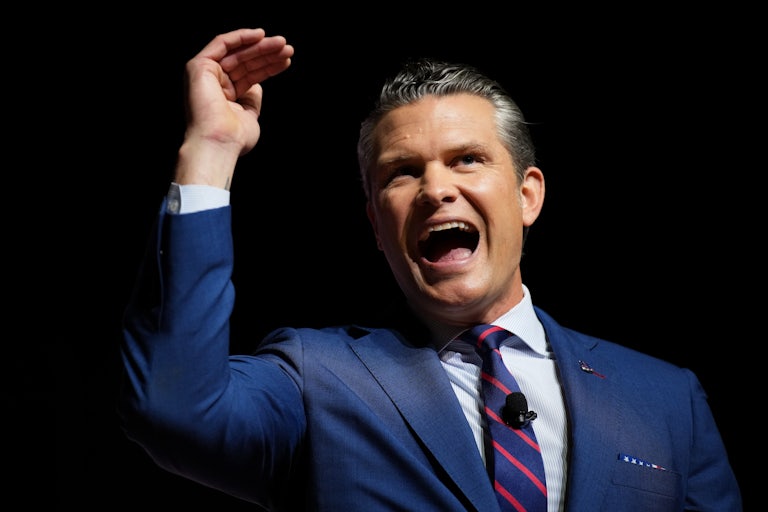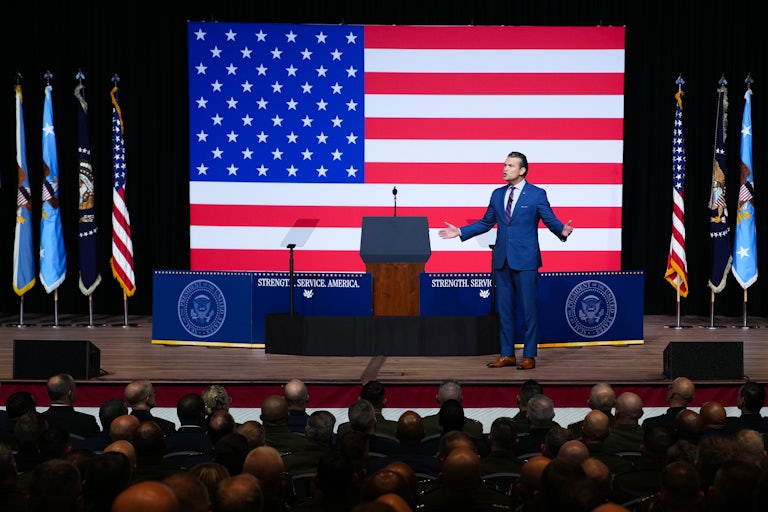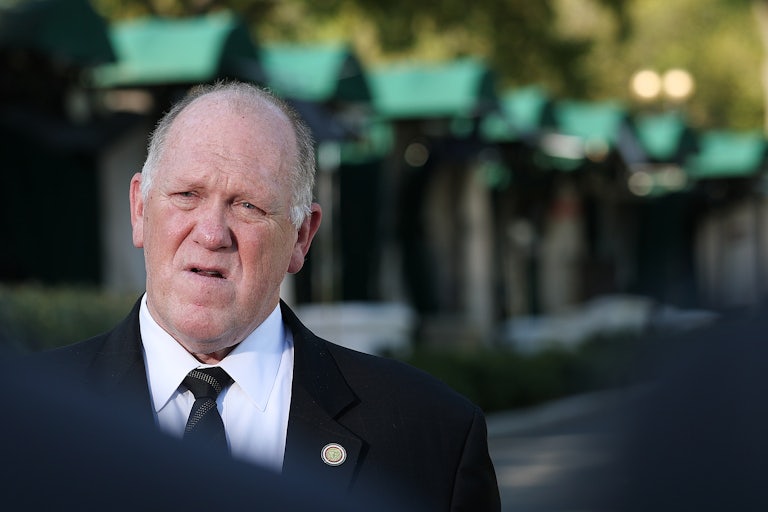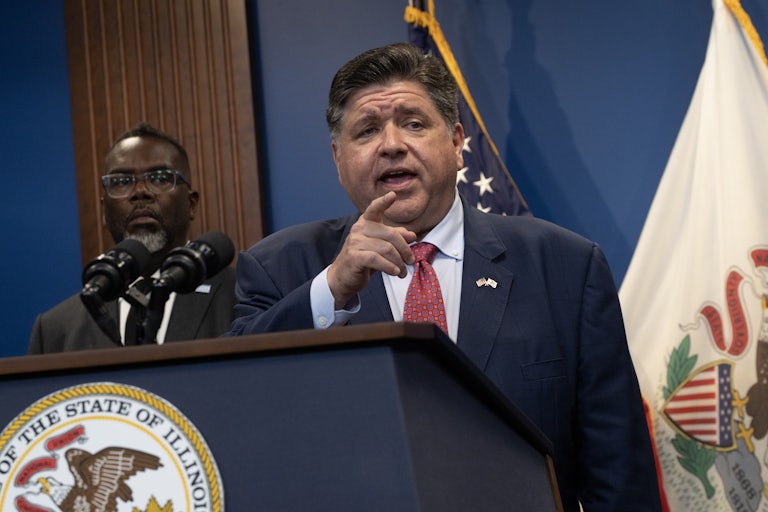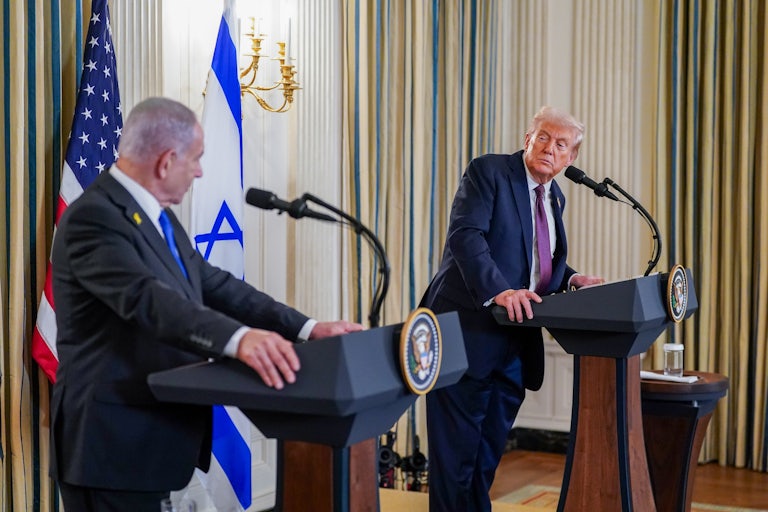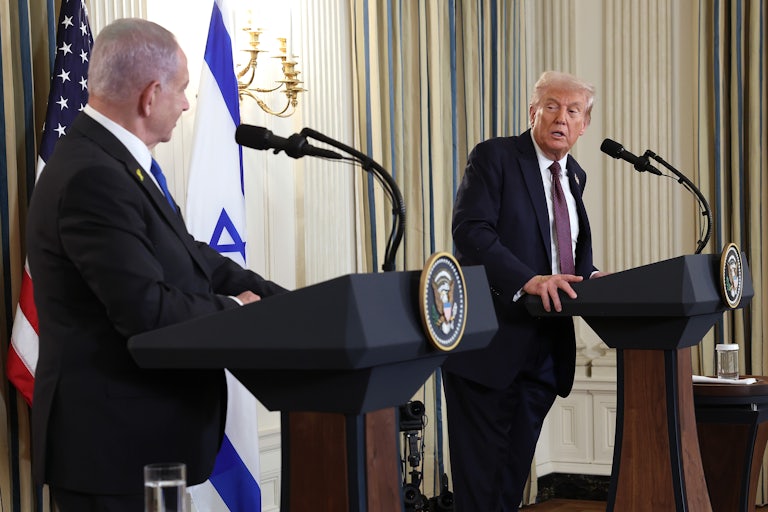Pete Hegseth Announces Unhinged Changes to Military Training
Hegseth revealed he was reducing some training requirements but permitting aggressive training tactics.
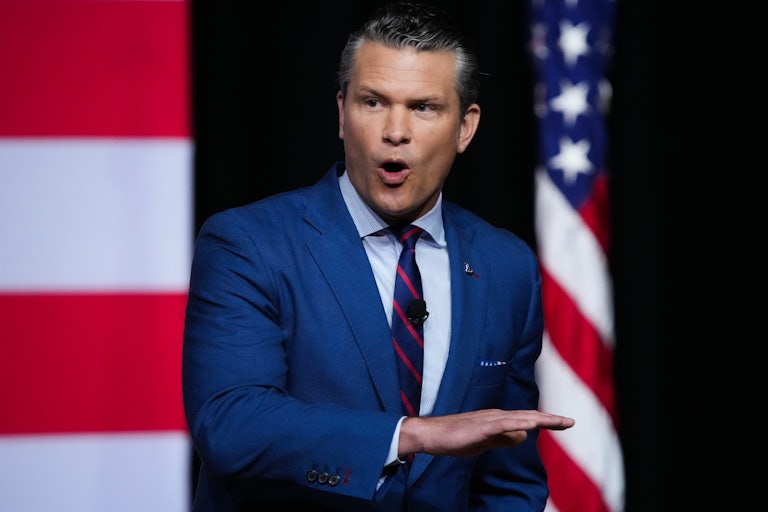
War Secretary Pete Hegseth announced Tuesday that he plans to reduce mandatory training, and use hazing to get his soldiers ready for a fight.
Speaking at a meeting of hundreds of U.S. military officials he’d summoned to Washington, Hegseth explained that he wanted to shift training standards to improve retention. Doing that would involve “drastically reducing the ridiculous amount of mandatory training that individuals and units must execute,” he said.
“We’ve already ended the most egregious, now we’re giving you back real time. Less Powerpoint briefings, and fewer online courses. More time in the motor pool, and more time on the range,” Hegseth said.
It’s not entirely clear what online training Hegseth hoped to skip, but he seemed intent on getting officers off the computer and outside. But even in the military, learning is done in a classroom.
For example, Army mandatory training requires trainees to complete virtual courses on anti-trafficking and anti-terrorism, threat awareness, and information security and awareness. But it shouldn’t be all that surprising that Hegseth may be willing to skip out on a course teaching Operational Security, after he shamelessly sent war plans into a group chat with a civilian journalist.
The Army previously reduced the mandatory training standards in April, making it optional for officers to learn the law of war, including what Hegseth termed Tuesday as “the politically correct rules of engagement,” as well as the soldiers’ code of conduct.
If virtual classes won’t teach recruits, what will? Hegseth has an answer: hazing.
“Basic training is being restored to what it should be: scary, tough, and disciplined. We’re empowering drill sergeants to instill healthy fear in new recruits, ensuring future war fighters are forged,” Hegseth said.
“Yes, they can shark attack, they can toss bunks, they can swear, and yes they can put their hands on recruits. This does not mean they can be reckless, or violate the law, but they can use tried and true methods to motivate the troops, to make them the warriors they need to be,” Hegseth continued.
“The tougher and the higher the standards in our units, the higher the retention rates in those units. Warriors want to be challenged, troops want to be tested. When you don’t train and you don’t maintain, you demoralize,” he said.
In fact, combat-deployed soldiers who experience hazing are statistically more likely to experience mental health problems and thoughts of suicide.
While working to improve morale on one end by making training more hands-on, Hegseth plans to remove safeguards preventing trainees from targeted violence from their superiors, as part of his sweeping efforts to transform the U.S. military into a mindless, lawless militia.
